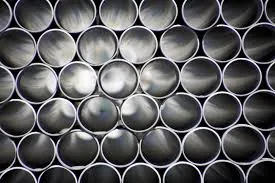
-
 Afrikaans
Afrikaans -
 Albanian
Albanian -
 Amharic
Amharic -
 Arabic
Arabic -
 Armenian
Armenian -
 Azerbaijani
Azerbaijani -
 Basque
Basque -
 Belarusian
Belarusian -
 Bengali
Bengali -
 Bosnian
Bosnian -
 Bulgarian
Bulgarian -
 Catalan
Catalan -
 Cebuano
Cebuano -
 China
China -
 China (Taiwan)
China (Taiwan) -
 Corsican
Corsican -
 Croatian
Croatian -
 Czech
Czech -
 Danish
Danish -
 Dutch
Dutch -
 English
English -
 Esperanto
Esperanto -
 Estonian
Estonian -
 Finnish
Finnish -
 French
French -
 Frisian
Frisian -
 Galician
Galician -
 Georgian
Georgian -
 German
German -
 Greek
Greek -
 Gujarati
Gujarati -
 Haitian Creole
Haitian Creole -
 hausa
hausa -
 hawaiian
hawaiian -
 Hebrew
Hebrew -
 Hindi
Hindi -
 Miao
Miao -
 Hungarian
Hungarian -
 Icelandic
Icelandic -
 igbo
igbo -
 Indonesian
Indonesian -
 irish
irish -
 Italian
Italian -
 Japanese
Japanese -
 Javanese
Javanese -
 Kannada
Kannada -
 kazakh
kazakh -
 Khmer
Khmer -
 Rwandese
Rwandese -
 Korean
Korean -
 Kurdish
Kurdish -
 Kyrgyz
Kyrgyz -
 Lao
Lao -
 Latin
Latin -
 Latvian
Latvian -
 Lithuanian
Lithuanian -
 Luxembourgish
Luxembourgish -
 Macedonian
Macedonian -
 Malgashi
Malgashi -
 Malay
Malay -
 Malayalam
Malayalam -
 Maltese
Maltese -
 Maori
Maori -
 Marathi
Marathi -
 Mongolian
Mongolian -
 Myanmar
Myanmar -
 Nepali
Nepali -
 Norwegian
Norwegian -
 Norwegian
Norwegian -
 Occitan
Occitan -
 Pashto
Pashto -
 Persian
Persian -
 Polish
Polish -
 Portuguese
Portuguese -
 Punjabi
Punjabi -
 Romanian
Romanian -
 Russian
Russian -
 Samoan
Samoan -
 Scottish Gaelic
Scottish Gaelic -
 Serbian
Serbian -
 Sesotho
Sesotho -
 Shona
Shona -
 Sindhi
Sindhi -
 Sinhala
Sinhala -
 Slovak
Slovak -
 Slovenian
Slovenian -
 Somali
Somali -
 Spanish
Spanish -
 Sundanese
Sundanese -
 Swahili
Swahili -
 Swedish
Swedish -
 Tagalog
Tagalog -
 Tajik
Tajik -
 Tamil
Tamil -
 Tatar
Tatar -
 Telugu
Telugu -
 Thai
Thai -
 Turkish
Turkish -
 Turkmen
Turkmen -
 Ukrainian
Ukrainian -
 Urdu
Urdu -
 Uighur
Uighur -
 Uzbek
Uzbek -
 Vietnamese
Vietnamese -
 Welsh
Welsh -
 Bantu
Bantu -
 Yiddish
Yiddish -
 Yoruba
Yoruba -
 Zulu
Zulu
frp desalination pipes and fittings for efficient water treatment
Efficient Water Treatment with FRP Desalination Pipes and Fittings
As the global water crisis intensifies, the need for effective desalination technologies becomes increasingly critical. One of the key components of these technologies is the materials used in the construction of desalination plants. Among various materials, Fiber Reinforced Plastic (FRP) has emerged as a preferred choice for pipes and fittings in water treatment applications. This article explores the advantages of FRP desalination pipes and fittings, focusing on their efficiency, durability, and sustainability.
Understanding FRP
Fiber Reinforced Plastic (FRP) is a composite material made from a polymer matrix reinforced with fibers, typically glass or carbon fibers. This unique combination provides FRP with superior strength-to-weight ratios and corrosion resistance, making it an ideal material for high-demand applications such as water treatment and desalination. The use of FRP in desalination ensures a longer lifespan and reduced maintenance costs compared to traditional materials like steel or concrete.
Corrosion Resistance
One of the most significant advantages of FRP pipes and fittings is their exceptional corrosion resistance. In desalination processes, pipes transport seawater and brine, both of which are highly corrosive. Traditional materials can suffer from severe degradation over time, leading to leaks, inefficiencies, and costly repairs. In contrast, FRP withstands the harsh marine environment, ensuring that water treatment systems remain operational for extended periods. This property dramatically reduces the maintenance frequency and costs associated with pipe replacements and repairs.
Lightweight Design
FRP materials are significantly lighter than their metal or concrete counterparts. This lightweight nature simplifies the transportation and installation processes, leading to faster project completion times. In desalination plants, where extensive piping systems are required, the reduced material weight can translate into cost savings in both labor and logistics. The ease of handling FRP also minimizes the risk of injury during installation, promoting workplace safety.
frp desalination pipes and fittings for efficient water treatment

Enhanced Thermal Insulation
Thermal considerations are vital in desalination processes, particularly in preventing energy losses. FRP exhibits excellent thermal insulation properties, helping maintain the optimal temperature throughout the water treatment process. Effective thermal management translates into energy efficiency, reducing operational costs for desalination plants and making them more sustainable in the long run.
Sustainability and Environmental Impact
The environmental impact of desalination is a growing concern. Traditional methods often involve significant energy consumption and greenhouse gas emissions. However, by employing FRP pipes and fittings, desalination plants can enhance their sustainability. The longevity and reduced maintenance of FRP lead to decreased resource consumption over time. Additionally, innovative recycling techniques are being developed for FRP materials, allowing for more eco-friendly disposal and minimizing their environmental footprint.
Customization and Versatility
FRP can be tailored to meet specific project requirements, allowing for the fabrication of custom shapes, sizes, and specifications for pipes and fittings. This versatility enables engineers to design solutions that fit precisely within the constraints of their projects, optimizing the flow dynamics and overall efficiency of the desalination process. Such customization capabilities are particularly beneficial in regions where existing infrastructure must be adapted to incorporate new technologies.
Conclusion
In conclusion, FRP desalination pipes and fittings represent a significant advancement in the field of water treatment. Their corrosion resistance, lightweight design, thermal insulation properties, and environmental sustainability make them a superior choice for modern desalination applications. As the demand for fresh water continues to escalate worldwide, investing in efficient and effective materials like FRP can aid in maintaining a reliable and sustainable water supply. By harnessing the potential of FRP technology, we can take meaningful strides toward addressing the pressing challenges of water scarcity and enhancing the efficiency of water treatment systems globally.









